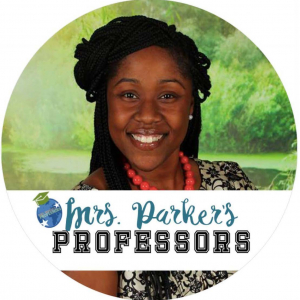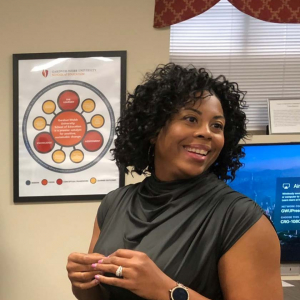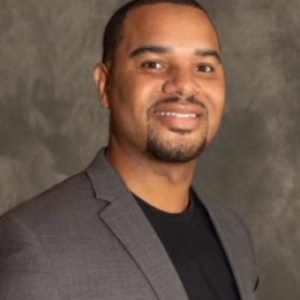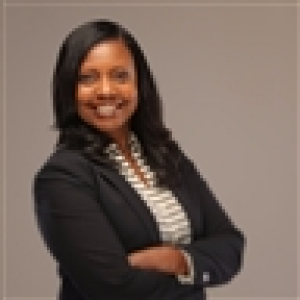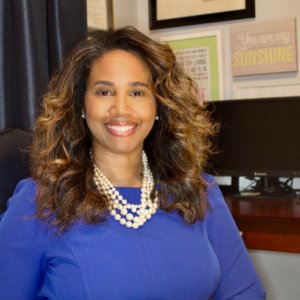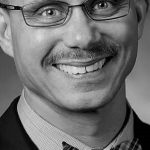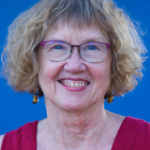Please join us for the
2020 Virtual Summer Institute on Pedagogy and Equitable Teaching and Learning of Languages and Cultures: July 25th, July 31st, August 1st (10am-4pm)
Presented by: The Duke University Slavic and Eurasian Language Resource Center (SEELRC) and Center for Slavic, Eurasian, and East European Studies (CSEEES).
Please note the following topics for each day:
July 25th: Deepening partnerships across NC K-12 and universities (NCCU, NC A&T, Gardner-Webb, Duke)
July 31st and August 1st: Pedagogy & Equitable Teaching and Learning across the Curriculum: Language Pedagogy, Research, Testing and Development of Web-based Materials for Classroom and Remote Platforms.
All sessions will take place on Zoom
PDF programs available below.
Please contact Edna Andrews (eda@duke.edu) or Cathy Lewis (c.lewis@duke.edu) for inquiries about the 2020 Summer Institute.
Summer Institute On Deepening partnerships across NC K-12 and universities (NCCU, NC A&T, Gardner-Webb, Duke)
and
Pedagogy & Equitable Teaching and Learning across the Curriculum–Language Pedagogy, Research and Testing: Development of web-based materials for classroom and remote platforms
Hosted and funded by the
Slavic and Eurasian Language Resource Center (SEELRC)
Center for Slavic, Eurasian, and East European Studies (CSEEES)
Duke University
Day 1: July 25, 2020
(all sessions will be held on Zoom)
Saturday, July 25: Future teachers, curriculum and social justice: Equitable teaching and learning across the curriculum
9:55-10:00 a.m.: Welcome
Edna Andrews
Professor of Linguistics & Cultural Anthropology
Nancy & Jeffrey Marcus Professor
Chair, Linguistics Program
DIBS/CCN
Duke University
10:00-11:00 a.m.: “Edifying Minority Voices in the Urban STEM Classroom and Beyond”
This session will invite educators of all backgrounds to engage in conversations surrounding achievement and opportunity gaps in our schools in the interest of enhancing the schooling experiences of all students in urban school settings. Participants will be encouraged to create action plans and playbooks to serve as a guide in supporting and uplifting students in the urban STEM classroom and far beyond. Experts in the field will join the host(presenter) to offer a depth of insight on the topic, and provide feedback on module activities.
Javaria Johnson: Masters of Teacher Leadership in Curriculum and Instruction (MTLCI) Candidate; Gardner-Webb University, Secondary Science Teacher, High Point Central High School, High Point, NC
Turquoise Parker: North Carolina Association of Educators, NEA Director, Elementary Teacher, Lakewood Elementary, Durham, NC
Cheresa Simpson: Program Coordinator, Teacher Leadership in Curriculum & Instruction, Gardner- Webb University
LINKS AND RESOURCES
https://flipgrid.com/amplifystemvoices
https://www.nctm.org/Store/Products/High-School-Mathematics-Lessons-to-…
https://jausa.ja.org/
https://www.blackgirlscode.com/
https://www.tandfonline.com/doi/abs/10.1080/00131946.2017.1369082
https://www.zinnedproject.org/
https://rethinkingschools.org/
https://neaedjustice.org/
11:00-12:00 p.m.: “The Use of Social Emotional Learning and Culturally Responsive Teaching During COVID-19”
This interactive presentation will provide teachers with culturally relevant practices to meet learners’ social emotional needs. It will include trauma-informed practices to assist classroom teachers as they navigate through the COVID-19 pandemic. The research-based practices are embedded in a framework developed by the Center for Reaching and Teaching the Whole Child (see attached) and incorporate Zaretta Hammond’s work, Culturally Responsive Teaching and The Brain. Teachers are encouraged to hone their culturally responsive lens in the following ways: exploring assumptions, modeling, providing practice and self-reflection. Three Anchor Competencies from the Social Emotional Learning/Culturally Responsive Teaching (SEL/CRT) framework will be targeted: building trusting relationships, fostering self-reflection and responding constructively to conflict across disciplines. For each anchor competency, scenarios and hands-on activities will be provided. Participants will be provided with innovative ways to incorporate social justice activities into their lessons. Participants will also receive a toolkit that will assist them during the school year.
Kia Eason: Supplemental Instruction Coordinator, North Carolina Central University
Freda Hicks: School Partnership and Induction Counselor, North Carolina Central University
Megan Lyons: Assistant Professor, North Carolina Central University
12:00-12:30 p.m.: Additional questions and discussion
12:00-1:00 p.m.: Lunch break
1:00-2:00 p.m.: “Unmasking the Trauma of COVID-19 and George Floyd in Pre-Service Teacher Preparation”
In the College of Education at North Carolina Agricultural and Technical State University (NC A&T), the guiding theme is “Learn to Lead. Lead to Transform: Equity, Access, and Advocacy.” The College of Education strives to produces candidates, known as Aggie Educators, who serve as classroom leaders and advocate for equity in the schools in which they serve. As the nation’s largest historically Black college or university (HBCU), NC A&T provides opportunities for large numbers of students from diverse backgrounds to become qualified teachers. Faculty in the Department of Educator Preparation consistently work to equip pre-service teachers with the requisite content knowledge and high-leverage practices to immediately affect change in the classrooms in which they serve. Moreover, faculty work to provide opportunities for candidates to practice advocacy skills and address issues of inequity and bias within their school communities. This resolution to prepare preservice teachers who address inequity and bias aligns with the university’s rich history that includes a significant role in the struggle for civil rights for African Americans. In 1960, Ezell Blair, Franklin McCain, Joseph McNeil, and David Richmond, four freshman students at A&T College, initiated lunch counter sit-ins at Woolworth’s, and their non-violent protest inspired a wave of sit-ins that played a role in raising awareness of and ending segregation in North Carolina. Consequently, NC A&T is uniquely situated to facilitate critical conversations regarding the preparation of preservice teachers during this new landscape that includes the COVID-19 national pandemic, along with the civic demonstrations and protests surrounding the murders of George Floyd, Breonna Taylor, and Rayshard Brooks. Using a podcast format, select NC A&T faculty will engage in discussions on the aforementioned and discuss how these factors impact their practice and share strategies to prepare preservice teachers during these unique times.
Jared Webb: Assistant Professor, Education Preparation, NC Agricultural &Technical State University
Brian Williams: Assistant Professor, Education Preparation, NC Agricultural & Technical State University
Nicole Dobbins: Associate Professor, Education Preparation, NC Agricultural &Technical State University
Nakeshia Williams: Associate Professor, Education Preparation, NC Agricultural & Technical State University
Gerrelyn C. Patterson, Ph.D.: Chair, Department of Educator Preparation, College of Education, North Carolina Agricultural and Technical State University
2:00-3:00 p.m.: “Reimagining Language and Curriculum to Lever Equitable Classrooms and Schools”
COVID-19 and deepening awareness of racial and social injustices have challenged educators to reimagine ways to support pre-service and practicing teachers and the students and families they serve. As the country and its schools move forward during and post pandemic, educators must re-envision the curriculum and language of teaching and learning. Comprised of four presentations led by pre-service teachers, practicing educators and school administrators, and teacher education faculty, this session will empower teacher voice and student identity to explore initiatives around language and curriculum as a lever for equitable classrooms and schools.
Facilitators:
David Malone: Professor of the Practice of Education, Director, Duke Service-Learning; Director, Undergraduate Studies in Education
Jan Riggsbee: Professor of the Practice of Education, Co-Founder & Director, Duke TeachHouse, Director, Duke K-6 Teacher Preparation
Discussant:
Liliana Paredes: Professor of the Practice, Romance Studies Department, Linguistics Program, Director Spanish Language Program
Redefining the Canon: Restorative and Responsive Pedagogy
Holly Jordan: English Teacher, Hillside High School, Durham NC, Duke M.A.T. Mentor Teacher
Michele L. Saunders: English Teacher, Durham School of the Arts, Duke TeachHouse Fellow, Duke Durham Teaching Fellow, Duke M.A.T. 2020
Communication During a Crisis: Strengthening Community in a Multilingual Elementary School
Leah Erlbaum: Duke Pre-service Teacher, Elementary K-6, Instructional Assistant, Lakewood Elementary School, Durham NC
James Hopkins: Principal, Lakewood Elementary School, Durham NC
Visible Inequities: Reflections from an Early Career Teacher – COVID and Distance Learning
Michael Chiang: 2018 Duke graduate, Economics/Education, Social Studies Teacher, Forest Park High School, Baltimore, MD
Afrocentric Voices and Viewpoints: Problematizing Curriculum, Historiography and Epistemology to be Anti-Racist
Martin Smith: Assistant Professor of the Practice of Education, Director, Duke Secondary Teacher Preparation
3:00-3:30 p.m.: Additional questions and discussion
3:30-4:30 p.m.: “Deepening diversity in teaching and learning of languages and cultures”
Edna Andrews: Professor of Linguistics & Cultural Anthropology, Nancy & Jeffrey Marcus Professor of Slavic & Eurasian Studies. Chair, Linguistics Program. Director, CSEEES & SEELRC. Duke University
Lee D. Baker: Mrs. A. Hehmeyer Professor of Cultural Anthropology
Abbas Benmamoun: Vice Provost for Faculty Advancement, Professor of Asian & Middle Eastern Studies & Linguistics
Michael Newcity: Deputy Director CSEEES, Senior Research Scholar, Linguistics & Slavic Studies
Troy Williams, Ph.D.,: Duke University SEELRC Project Manager
Day 2: July 31, 2020
Friday, July 31: Pedagogy & Equitable Teaching and Learning across the Curriculum: Language Pedagogy, Research and Testing: Development of web-based materials for classroom and remote platforms
(all sessions will be held on Zoom)
9:55 – 10:00 a.m.: Welcome
Edna Andrews
Professor of Linguistics & Cultural Anthropology, Nancy & Jeffrey Marcus Professor, Director CSEEES & SEELRC
10:00-11:00 a.m.: “Edifying Minority Voices in the Urban STEM Classroom and Beyond”
Discussion following a previous session, which will invite educators of all backgrounds to engage in conversations surrounding achievement and opportunity gaps in our schools in the interest of enhancing the schooling experiences of all students in urban school settings. Participants will be encouraged to create action plans and playbooks to serve as a guide in supporting and uplifting students in the urban STEM classroom and far beyond. Experts in the field will join the panel leader to offer a depth of insight on the topic, and provide feedback on module activities.
Javaria Johnson: Masters of Teacher Leadership in Curriculum and Instruction (MTLCI) Candidate; Gardner-Webb University, Secondary Science Teacher, High Point Central High School, High Point, NC
Turquoise Parker: North Carolina Association of Educators, NEA Director, Elementary Teacher, Lakewood Elementary, Durham, NC
Cheresa Simpson: Program Coordinator, Teacher Leadership in Curriculum & Instruction, Gardner-Webb University
11:10 – 12:00 p.m.: Disembodied & embodied teaching and learning: Neuroscience applications to remote instruction
Edna Andrews: Professor of Linguistics & Cultural Anthropology, Nancy & Jeffrey Marcus Professor, Director CSEEES & SEELRC
12:00 – 1:00 p.m.: “Intercultural and Bilingual Education with speakers of minority languages in times of COVID19 (Latin America)”
Liliana Paredes: Professor of the Practice, Romance Studies Department, Linguistics Program, Director Spanish Language Program
1:00 – 2:00 p.m.: Lunch break
2:00 – 3:00 p.m.: “Standard Language Ideology in the Second Language Classroom”
Grace Fielder: Professor Emerita, Russian & Slavic Studies/Second Language Acquisition and Teaching, University of Arizona
3:00 – 3:35 pm: “The Universality of Linguistic Renaming: Case study of U.S. Army Bases.”
Michael Newcity: Deputy Director CSEEES, Senior Research Scholar, Linguistics & Slavic Studies
Day 3: August 1, 2020
Saturday, August 1: Pedagogy & Equitable Teaching and Learning across the Curriculum: Language Pedagogy, Research and Testing: Development of web-based materials for classroom and remote platforms
(all sessions will be held on Zoom)
9:55 – 10:00 a.m.: Welcome
Edna Andrews
Professor of Linguistics & Cultural Anthropology, Nancy & Jeffrey Marcus Professor, Director CSEEES & SEELRC
10:00 – 11:00 a.m.: “Language Ideologies and language teaching and learning”
Luciana Fellin: Professor of the Practice Romance Studies & Linguistics, Director, Italian Language Program, Duke University
11:00 – 12:00 p.m.: “Training American Astronauts to Communicate in Russian: A View from Inside”
Anthony Vanchu: TechTrans International Inc, Director, NASA Johnson Space Center Language Education Center
12:00 – 1:00 p.m.: “Knowledge of Russian morphosyntax, proficiency, and the input modality: A study of early (heritage) and late learners of Russian”
Kira Gor: Professor of Second Language Acquisition, University of Maryland
The talk will report the results of an empirical study involving heritage speakers and late learners of Russian at the same proficiency range in two modalities: auditory and visual. The participants were also tested on their sensitivity to the hard/soft contrast in Russian consonants. The findings are discussed with respect to how the input modality and phonological sensitivity mediate morphosyntactic processing in heritage speakers and late learners of Russian.
1:00 – 1:30 p.m.: Lunch break
1:30 - 2:30 p.m.: “The Structure of Russian Accentuation”
Ron Feldstein: Professor Emeritus, Department of Slavic and East European Languages and Cultures, Indiana University
2:30 – 3:45 p.m.: “A Roundtable Discussion on Aural Language Processing Techniques, Transcription and Technology”
Dragana McFadden: FSI Course Developer, Instructor of BCMS
Bogdan B. Sagatov: U.S. Department of Defense
Susan Sagatov: U.S. Department of Defense
Luke Tilbury: Instructor of Persian Farsi, Center for Language and Area Studies, National Cryptologic School, U.S. Department of Defense
3:45 – 4:00 p.m.: Closing remarks for the 2020 Summer Institute
Michael Newcity: Deputy Director CSEEES, Senior Research Scholar, Linguistics & Slavic Studies

